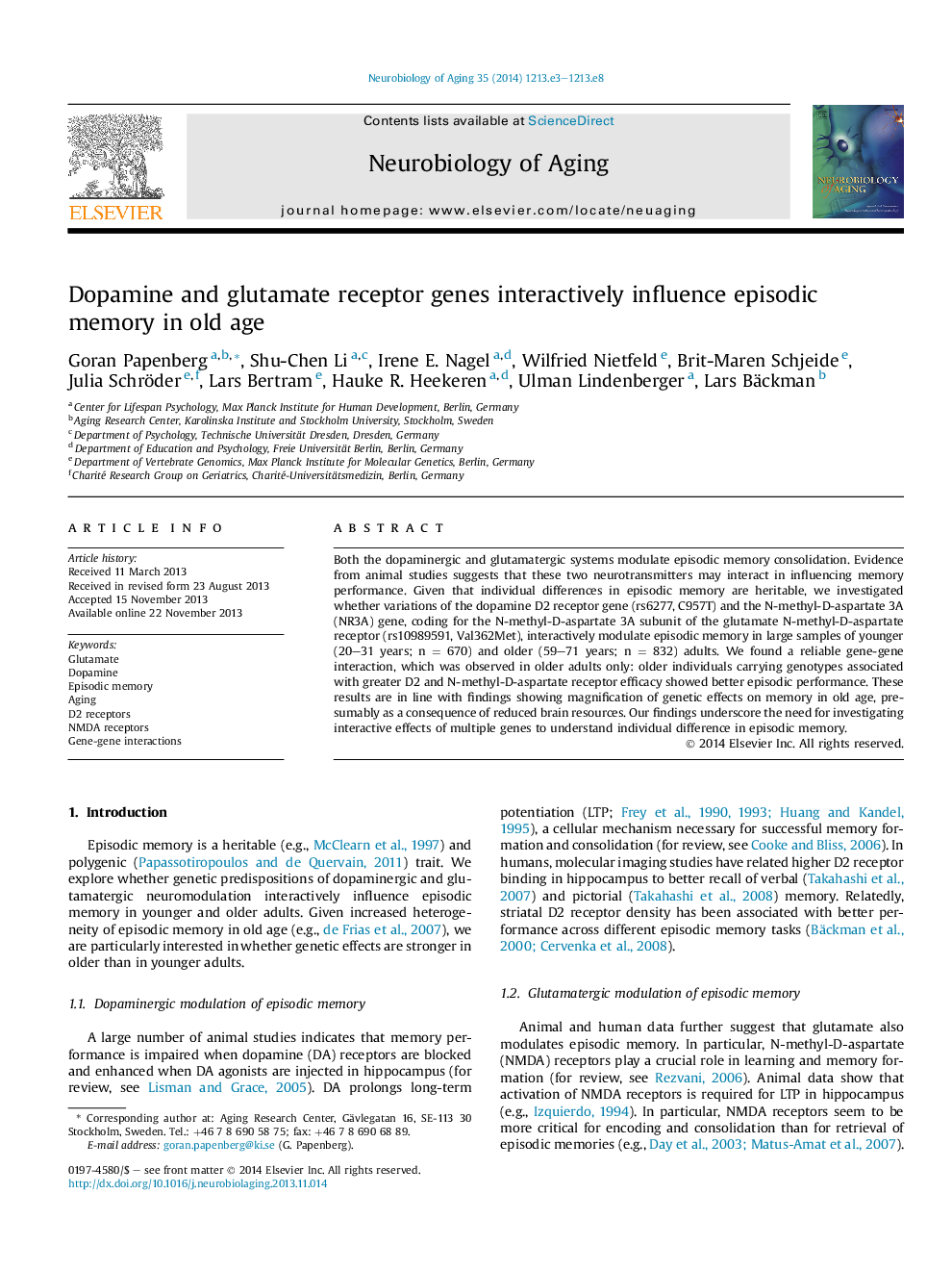| Article ID | Journal | Published Year | Pages | File Type |
|---|---|---|---|---|
| 6806188 | Neurobiology of Aging | 2014 | 6 Pages |
Abstract
Both the dopaminergic and glutamatergic systems modulate episodic memory consolidation. Evidence from animal studies suggests that these two neurotransmitters may interact in influencing memory performance. Given that individual differences in episodic memory are heritable, we investigated whether variations of the dopamine D2 receptor gene (rs6277, C957T) and the N-methyl-D-aspartate 3A (NR3A) gene, coding for the N-methyl-D-aspartate 3A subunit of the glutamate N-methyl-D-aspartate receptor (rs10989591, Val362Met), interactively modulate episodic memory in large samples of younger (20-31 years; n = 670) and older (59-71 years; n = 832) adults. We found a reliable gene-gene interaction, which was observed in older adults only: older individuals carrying genotypes associated with greater D2 and N-methyl-D-aspartate receptor efficacy showed better episodic performance. These results are in line with findings showing magnification of genetic effects on memory in old age, presumably as a consequence of reduced brain resources. Our findings underscore the need for investigating interactive effects of multiple genes to understand individual difference in episodic memory.
Related Topics
Life Sciences
Biochemistry, Genetics and Molecular Biology
Ageing
Authors
Goran Papenberg, Shu-Chen Li, Irene E. Nagel, Wilfried Nietfeld, Brit-Maren Schjeide, Julia Schröder, Lars Bertram, Hauke R. Heekeren, Ulman Lindenberger, Lars Bäckman,
